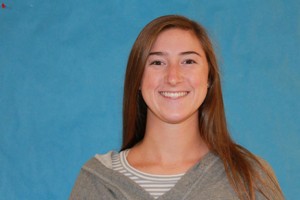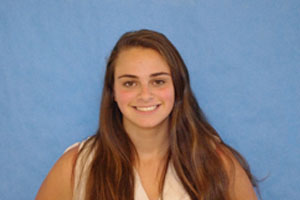Forty years ago, a woman named Norma McCorvey was young, pregnant and seeking an abortion in Texas, a state that prohibited it, except to save the mother’s life.
The name “Norma McCorvey” may not ring any bells for Staples students. But Norma McCorvey’s pseudonym, Jane Roe, and the court case she was involved in, Roe v. Wade, may sound familiar.
This year marks the 40-year anniversary of a court case that changed the laws of abortion for the entire nation. Roe vs. Wade gave women the “right of privacy” or the ability to get an abortion during specific times in the pregnancy. Without it, states could still deny a woman an abortion, regardless of her personal desires.
Fast-forward 40 years and countless court cases attempting to overturn Roe v. Wade, and you have the hot topic of abortion in the nation today.
As it stands, Connecticut is one of four states in the country that has an actual declaration in writing which protects a woman’s right to choose abortion. It is also one of the few states where a minor (in Connecticut, this is someone under the age of 18) can get an abortion without parent notification.
The Connecticut law that declares “the decision to terminate a pregnancy prior to the viability of the fetus shall be solely that of the pregnant woman in consultation with her physician” is influential. This legislation makes the difference between a state like Connecticut, where a 17-year-old can go to Planned Parenthood and get an abortion (covered by insurance or private funding) without notifying her parents, and a state like Kansas, where a minor must notify her parents of the abortion and cannot receive public funding or insurance coverage for the abortion unless her life is being threatened by the pregnancy.
According to Kafi Rouse, Director of Public Relations and Marketing at Planned Parenthood of Southern New England (PPSNE), one of the largest family planning organizations in the region, “our understanding of the American woman’s ability to have access to a safe and legal abortion has become more sophisticated” since the decision of Roe vs. Wade.
PPSNE also reports that abortions have steadily decreased. From 2007 to 2011, the rate of abortions in Connecticut declined by 13 percent, and females under the age of 18 who received abortions made up less than 5 percent of this number.
“Studies show that teens are delaying the onset of sex, have fewer partners and are more likely to use contraception,” said Rouse. Another factor that Rouse believes plays a large role is that “the state’s largest public school systems now provide contraception to sexually active teens.”
While the Westport Public School system does not provide contraception for its students, nearby Bridgeport school system, which has a school-based health center, provides contraception, pregnancy testing and prevention counseling, as well as testing and treatment of sexually-transmitted diseases. In addition, New York City schools have recently begun offering Plan B and other “morning after” pills, free of charge, to students.
It may not come as a surprise that Staples does not offer these programs to its students. Abortion—whether the physical operation or medically enforced abortion—is not a widely-discussed topic within the school hallways.
While Staples does have a comprehensive sex-education course, abortion is not an explicit part of the curriculum, according to Health teacher Kelly Garrity. “If the topic comes up, I am happy to answer questions,” Garrity added. The topic is briefly covered in government classes, where AP Government teacher Suzanne Kammerman says roughly half of her students do not know what Roe v. Wade is before they enter her class. However, it is covered as an example of a constitutional right to privacy as part of civil rights and civil liberty unit, and the legality of abortion itself is not discussed.
Social studies teacher Carol Avery, who has a Masters in women’s studies and history from Southern Connecticut State, teaches American women’s history at UConn’s campus in Stamford.
“For college classes, I use Connecticut as an example of how a more liberal state treats abortion laws and abortion rights. For high school, I don’t,” said Avery.
Avery has taught the subject of abortion at Staples while covering Roe vs. Wade in government, psychology, and AP World History classes, yet each time, Avery’s goal is not to specifically cover abortion, but to cover the Supreme Court case. “I just treat it as a straight up supreme court case decision. We don’t get into the history of it, and we don’t get into the nonstop debate over it,” said Avery, who said she aims to teach the subject as objectively as possible. “Students need to come up with that decision themselves,” she said.
According to an Inklings survey, students have indeed come up with their own thoughts regarding abortion. A survey of Staples students reports that 83.9% are for abortion, 12.8% are against abortion and fewer than 1% believe it depends on the case by case situation.
Although Staples students seem to lean pro-choice, abortion is still not commonly discussed in the halls of Staples. Natalie Pulvino ‘14, one of the co-founders and a co-president of the Women Empowerment Club, believes abortion is a lot more common at Staples than people think. “Most people don’t think pregnancy is necessarily an issue in Westport, but I think that’s only because teenagers have enough money to get abortions, so people just don’t notice it,” Pulvino said.














































